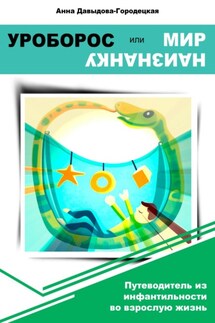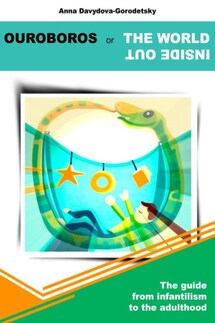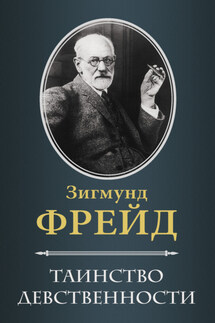Ouroboros or the world inside out - страница 4
Thus, Ouroboros, swallowed with the apple, promises and punishes everyone and always. He promises a return to Paradise, punishes by striving for perfection and the impossibility of achieving it. He exists in the psyche of all people – the same evil that was the fruit of the tree of Eden. And this evil is the punishment for the original sin of the forefathers.
Now let us imagine an infant in the mother's womb – there, the infant is protected, always fed, never lonely, has no worries, is always warm, and does not know about its «inferiority». The infant does not have to do anything there, only sleep. The mother's womb, the memory of which lives in the subconscious of each of us, may well be associated with the lost Paradise.
Ouroboros, transmitted by inheritance, having originated in a new person in the «paradise» of the mother's womb, leads this person through self-destruction to death in the life following birth, so that in a succession of incarnations, they again find themselves in the "paradise of the womb" together with a new life.
God → Paradise → Adam and Eve → Expulsion → life of labor and care → death → return to the earth, "from which one is taken".
And similarly: mother (God) → womb (paradise) → child (Adam or Eve) → Expulsion (birth) → life poisoned by the poison of the Ouroboros → self-destruction → death → hope of repeating the cycle.
Of course, no Ouroboros exists in our consciousness, and this book is about the emotional reactions and behavioral options of a person stuck at the infantile stage of psychological development. But if we take this fantasy as the starting point of a journey into our subconscious, it will be easier to navigate there. Therefore, let us accept as axiomatic the fact that every human being has in their psyche the structure of «Ouroboros», which I will discuss in this essay, because they are descendants of Adam and Eve. They also have the experience of life in the "paradise of the womb" and the experience of «expulsion» from the "paradise of the womb" at the moment of birth, followed by helpless infancy. With a responsive mother, the person successfully lives through this time and grows into a realized personality. However, even an adult personality under stress or overwork can regress to an earlier stage of psychological development.
The trigger mechanism for keeping the infantile personality structure intact, with the arrest of mental maturation, is maternal or substitute rejection – intentional, forced, or accidental. Probably, the more responsive and warm the mother is, the fewer the consequences of this birth shock – the expulsion from the "paradise of the womb". Conversely, the more indifferent or depressed the mother is, the greater the contrast between the womb and life outside it, and the stronger the desire to return there. The very fact of birth, from the infant's point of view, is already a fact of rejection. With repeated (post-birth) rejection by the mother, this infantile stage is fixed, and maturation does not occur; the personality remains stuck in the ouroboric structure.
The child's psyche probably seeks an explanation for what happened within itself and fixes on the paradigm: "If I become a better person, I will be worthy of love". Thus, the closure in the ouroboric circle is due to the coldness and insensitivity of the adults around the infant, who respond only to maximum crying and fulfill minimal needs. The child receives attention only after suffering. Another paradigm entrenched in their psyche is: "If I suffer, there is a chance that I will be noticed and given favors".







